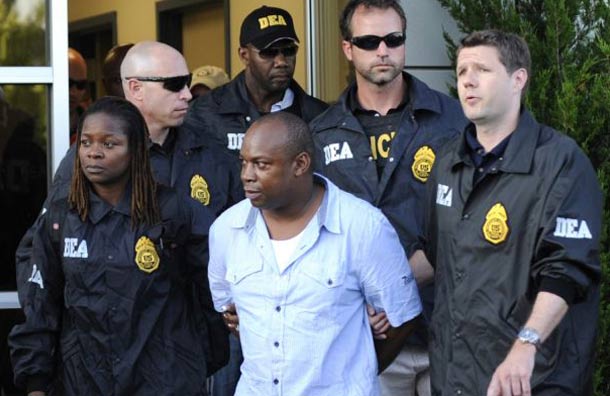Jamaican Drug Lord Pleads Guilty
Christopher Michael “Dudus” Coke, infamous drug dealer supreme and Jamaican organized crime leader, pled guilty to racketeering, trafficking, and drug-related violence on August 31. The BBC reported that Coke’s answer to the charges was simply, “I’m pleading guilty because I am.” Coke, leader of the “Shower Posse” gang, had run cocaine and marijuana smuggling operations between South America, Mexico, the United Kingdom, and the United States. While the Jamaican government long hesitated in issuing a formal arrest warrant against him, the U.S. robustly requested Coke’s extradition in May of 2010. The process of extradition was prolonged, due to Jamaican officials’ claims that flawed proceedings were initiated against him, which was seen by some as an attempt to hide Coke’s alleged multi-tier connections with Jamaican officials.
After Coke’s arrest, an investigative commission was tasked with exploring potential links connecting Coke with various politicians, most notably Bruce Golding, the Prime Minister of Jamaica. In Sight and The Gleaner reported that Golding’s Labour Party enlisted the assistance of an American law firm, met with Washington lobbyists, and sidestepped legislative and judicial proceedings in an attempt to avoid Coke’s extradition. The sedulous sensitivity with which the Labour Party treated the entire matter indicates Golding’s apparent fear over what Coke might reveal to American prosecutors if extradited.
Despite Coke’s confirmed criminal status, many Jamaicans still view him as a protector of the common people. Guardian reported that the drug lord used his control of the neighborhood of Tivoli Gardens, a district in Jamaica’s capital of Kingston, to assist the impoverished, sending “children to school and buying food and clothes for hard-up families.” Groups of Kingston citizens had staged protests in support for Coke and against his extradition, believing Coke’s advocacy for his “constituents” to be far more effective and valuable than the palsied attention they were likely to receive from their own government. However, Coke’s admission of guilt may indicate the defense’s willingness to cooperate in revealing further instances of Jamaican and Caribbean-wide drug-related corruption, in pursuit of a lighter sentence.
The U.S. itself is not entirely immune to possible negative repercussions or uncomfortable embarrassment that could adversely affect U.S. drug policies in the Caribbean. The shifting nature of Washington’s drug strategies and the ebbs and flows of the alternating soft and hard application of White House pressure have never been either completely predictable or comprehensive.
For more information on this topic, see COHA’s previous articles:
Peril in Paradise: the Caribbean, the Fragile Third Border of the Drug Trade
Jamaica: Different Drug War, Different Strategy


